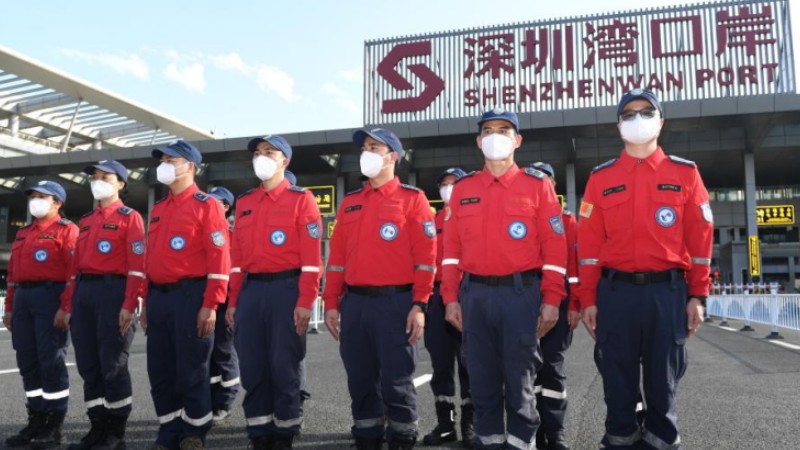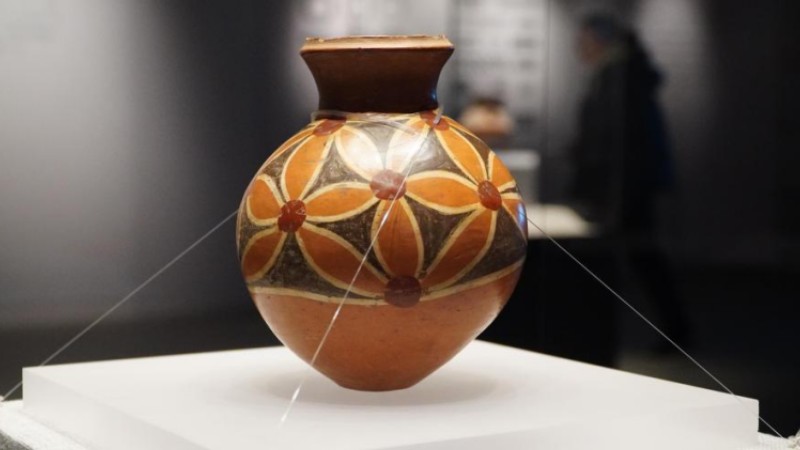U.S. sanctions hugely erode purchasing power of Iranian middle, lower classes
TEHRAN, Feb. 11 (Xinhua) -- Although the United States claims that the Iranian people are not the target of its sanctions, the country's middle and lower classes are experiencing a huge erosion of purchasing power as a result of the unilateral coercive measures.
Mohsen Mohammadi, a sales manager of a real estate office, said because of the U.S. sanctions, it has become difficult for low- and middle-class people in Iran to rent a house, let alone purchase one.
Two years ago, it cost about 1.5 billion rials (3,488 U.S. dollars in the parallel market) to buy a decent housing unit with an area of almost 90 square meters. Now, that amount is hardly sufficient to pay the yearly rent of a 60-square meter one, he explained.
Lying behind the soaring prices is the sharp depreciation of the rial against other major currencies over the past years as a result of U.S. sanctions. In 2018, each dollar was sold at 32,000 rials in the Iranian market, while the greenback is now priced at around 430,000 rials.
In addition, as many of the construction materials in Iran are imported, they are susceptible to sanctions and fluctuations in the foreign currency market, Mohammadi said, adding the cost of construction has witnessed a fourfold increase in the past three years.
Iran's automobile market is also among the sectors hit hard by the sanctions, which have made it difficult for the country to import cars and auto spare parts.
Prior to the reimposition of the U.S. sanctions, a locally manufactured sedan model known as Pride, an economy car affordable by the lower class, was priced at about 300 million rials, but it is sold at about 2.88 billion rials at present.
The price increase has been even more noticeable with regard to foreign automobiles.
Against such unfavorable conditions, domestic automakers in Iran are gaining momentum and expanding in size in the past few years.
Iran's car production has seen a steady increase since March 2019, as the country produced 671,435 vehicles from March 2019 to March 2020, and 994,156 from March 20 to Dec. 22, 2022, according to a report by the semi-official Mehr news agency.
Former U.S. President Donald Trump pulled Washington out of a 2015 nuclear deal between Iran and the world powers in May 2018, and reimposed unilateral sanctions on the country.
The sanctions, which have targeted Iran's main lifelines, namely oil exports and banking sectors, were reimposed as part of the U.S. "maximum pressure" campaign against Iran in an attempt to negotiate a new nuclear deal with the Iranian government.
Photos
Related Stories
- Sanctions removal contradicts U.S. previous claims of not targeting humanitarian effort -- experts
- Lebanon says U.S. sanctions can't prevent its humanitarian aid into Syria
- U.S. must face its deep-rooted disease of drug abuse
- Guns become No. 1 killer of children in the U.S.: report
- White House communications director to step down
Copyright © 2023 People's Daily Online. All Rights Reserved.









